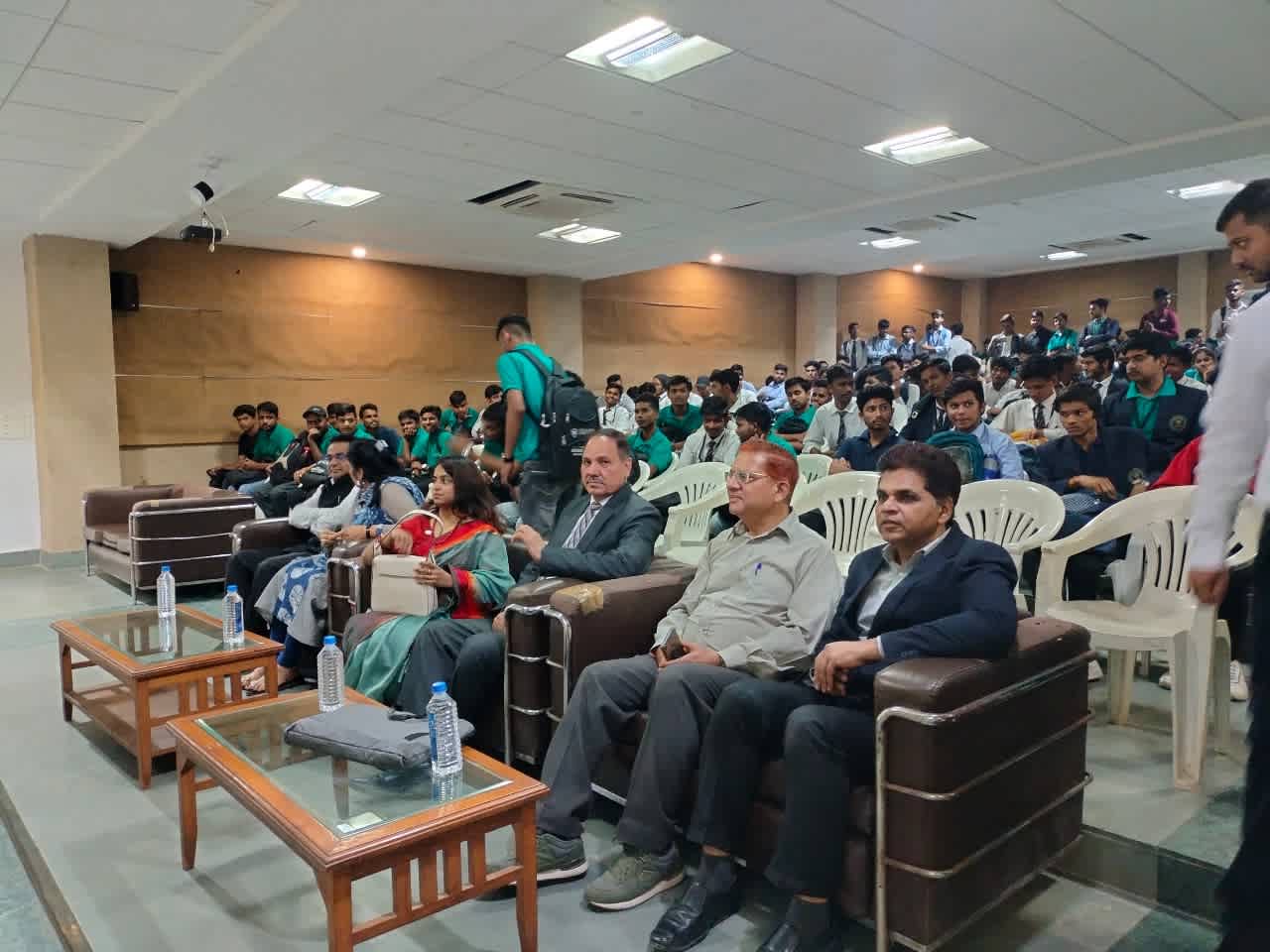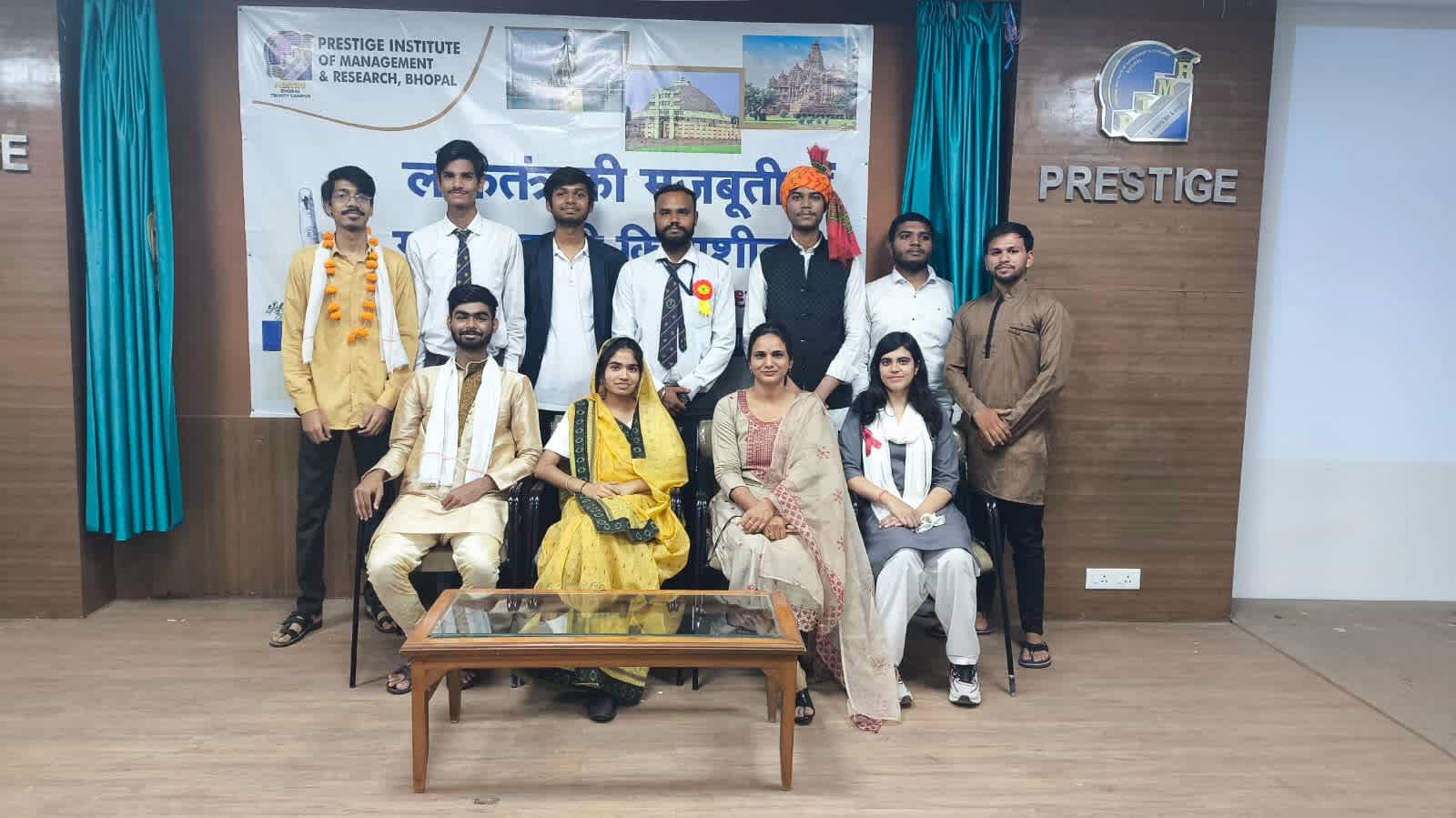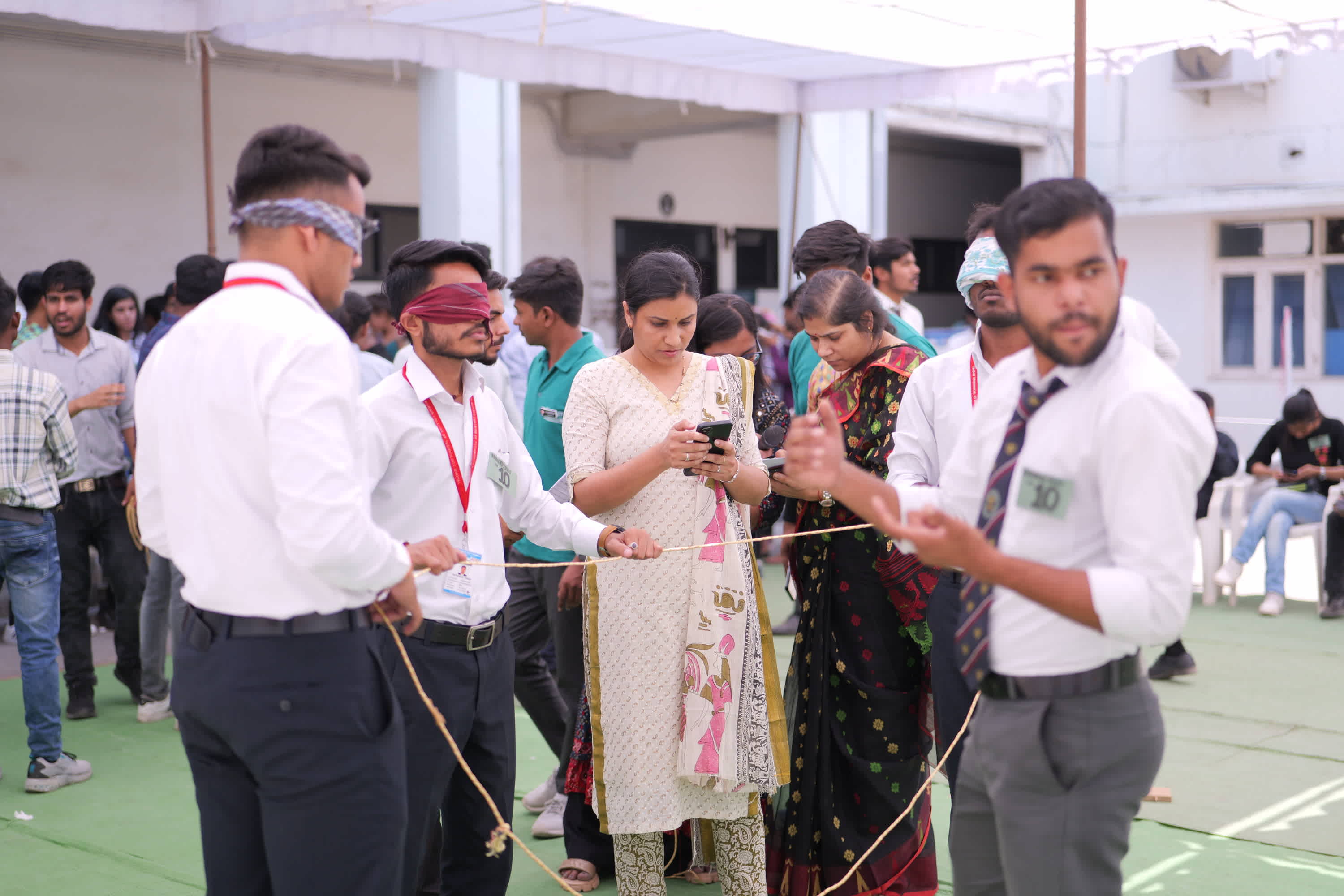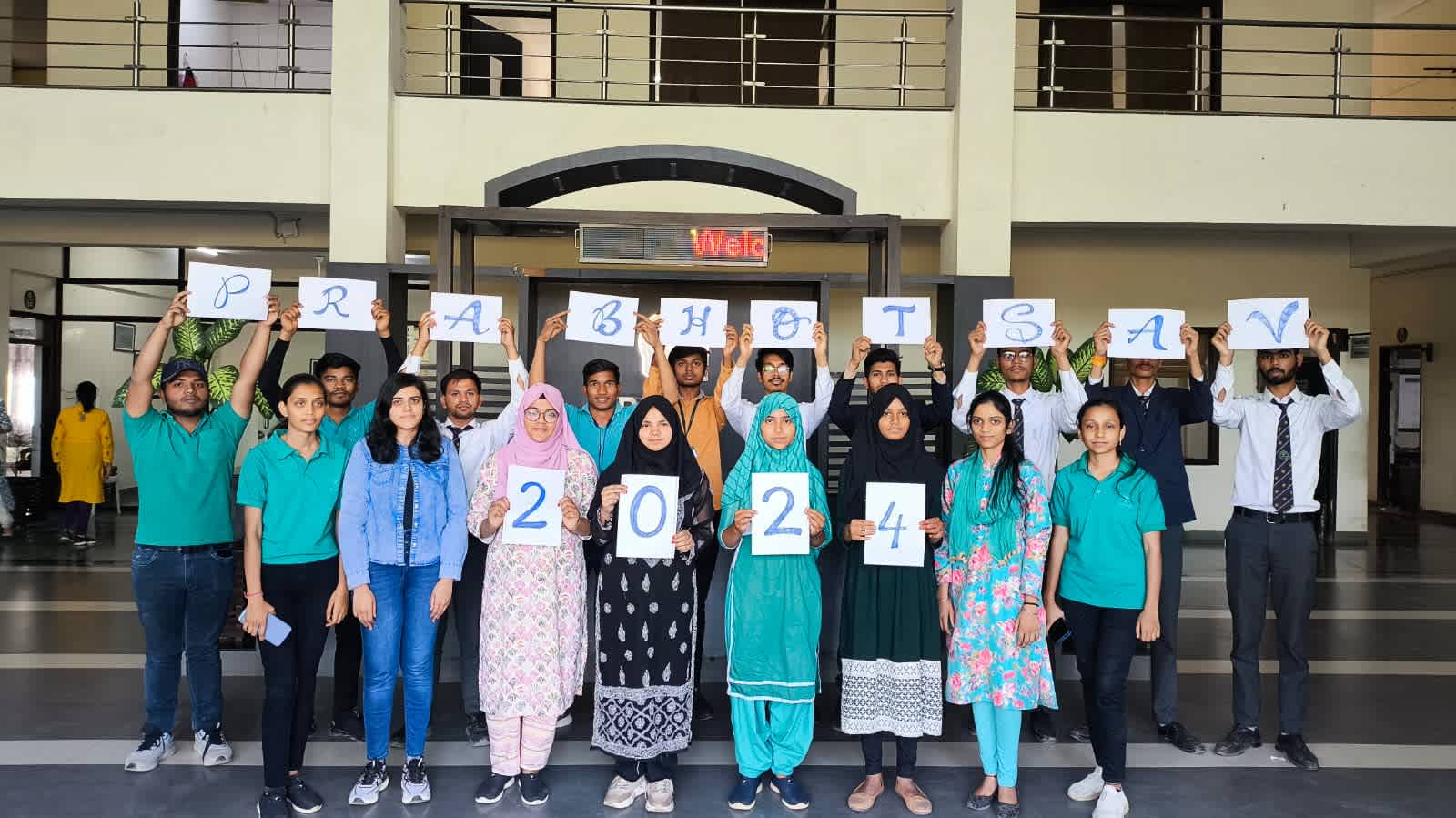The B.Tech. program in Computer Science & Engineering (CSE) stands out as one of the most sought-after programs within the field of Engineering. This discipline encompasses the exploration of computations, including the analysis of algorithms, programming languages, program design, software, and the development of mobile applications. A Computer Science Engineer, commonly referred to as a software engineer, assumes the responsibility of designing, developing, testing, and assessing software crucial for the operation of computers.
Computer Science & Engineering
Head Of Department

DR NEELESH JAIN
PROFESSOR & HEADAbout Department
Computer Science and Engineering (CSE)
Overview
The B.Tech. program in Computer Science & Engineering (CSE) stands out as one of the most sought-after programs within the field of Engineering. This discipline encompasses the exploration of computations, including the analysis of algorithms, programming languages, program design, software, and the development of mobile applications. A Computer Science Engineer, commonly referred to as a software engineer, assumes the responsibility of designing, developing, testing, and assessing software crucial for the operation of computers. The realm of software development entails the creation and coding of innovative programs and applications tailored to fulfill the requirements of businesses or individuals. Additionally, CSE serves as the foundation for thriving fields such as Artificial Intelligence, Machine Learning, Big Data, Internet of Things (IoT), Quantum Computing, Block Chains, and the Industry 4.0 Revolution. This program is particularly well-suited for students aspiring to build a career in software development within the IT sector. The Computer Science and Engineering department runs four-year full-time B. Tech program with a total intake of 120 students in B.Tech. The B.Tech program is affiliated to Rajiv Gandhi Technical University Bhopal and is approved by AICTE New Delhi. The department has well-qualified, experienced, and dynamic faculty members. The Department has well-equipped labs with necessary hardware and software to meet the curriculum and industry requirements. We have Project Lab, Advanced Lab, and CoE’s to harness the creative and innovative aspiring minds to put their imagination into reality. The Department has E-Cell to create high-quality projects and innovative work in order to focus on research and innovation. The main objective is to enhance the student employability skills through in-house training, workshops, guest lectures& alumni lectures from the industry & projects based on student interest. Students in the Department undergo Internship training from AICTE Approved Institute and company, also we organize in house training such as advanced programming training, skill enhancement training, capacity building, and industrial training to bridge the gap between Industry and Academia.
Department Vision
The Department's vision is to supply understudies with a quality instruction, cultivate polished skill, and improve their problem-solving capacities within the areas of computer science and building with the objective of planning them for careers within the industry and conducting inquire about for their continuous proficient improvement.
Department Mission
- To provide a comprehensive education in computer science and engineering that prepares our students for success in a rapidly changing technological landscape.
- To Endeavor a culture of innovation, collaboration, and excellence that inspires our students, faculty, and staff to achieve their full potential.
- To extend a rigorous curriculum that combines theoretical foundations with hands-on experience, and that emphasizes problem-solving, critical thinking, and creativity.
- To engage student in experiential learning opportunities, such as internships, research projects, and entrepreneurship programs, that enable them to apply their knowledge and skills to solve real-world problems that benefits society.
HOD Message:
It gives me immense pride to lead the Department of Computer Science and Engineering at PIMR Bhopal—a department committed to academic excellence, innovation, and industry relevance. Our extra curriculum is designed to keep pace with the evolving tech landscape, with a strong focus on hands-on learning, research, and skill development in areas like AI, Data Science, Cybersecurity, and Cloud Computing.
Looking ahead, we aim to establish Centres of Excellence, enhance industry collaborations, and promote interdisciplinary research that aligns with national missions and global standards. Our vision is to nurture competent, ethical, and socially responsible engineers who will drive the future of technology and innovation. Together, we strive to create an ecosystem where knowledge meets purpose and potential transforms into impact.
- Graduates will have fundamental and advanced knowledge of core courses and interdisciplinary engineering, enabling them to develop effective computing solutions by incorporating creative and logical reasoning.
- Graduates will possess the capabilities to develop software, understand technical specifications, design systems, and provide innovative solutions for society through diligence, teamwork, and lifelong learning.
- Graduates will demonstrate strong communication skills, leadership qualities, ethical values, and effective time management in their profession.
- Graduates will have the ability to gain employment in industries, pursue higher studies, or become researchers or entrepreneurs.
- Engineering knowledge – Apply the knowledge of mathematics, science, engineering fundamentals, and an engineering specialization to the solution of complex engineering problems.
- Problem analysis – Identify, formulate, review research literature, and analyze complex engineering problems, reaching substantiated conclusions using first principles of mathematics, natural sciences, and engineering sciences.
- Design/development of solutions – Design solutions for complex engineering problems and design system components or processes that meet specified needs, considering public health and safety, as well as cultural, societal, and environmental factors.
- Conduct investigations of complex problems – Use research-based knowledge and methods including experiment design, data analysis and interpretation, and synthesis of information to provide valid conclusions.
- Modern tool usage – Create, select, and apply appropriate techniques, resources, and modern engineering and IT tools, including prediction and modeling, to complex engineering activities with an understanding of their limitations.
- The engineer and society – Apply reasoning informed by contextual knowledge to assess societal, health, safety, legal, and cultural issues, and understand the related responsibilities in professional engineering practice.
- Environment and sustainability – Understand the impact of professional engineering solutions in societal and environmental contexts, and demonstrate knowledge of, and the need for, sustainable development.
- Ethics – Apply ethical principles and commit to professional ethics, responsibilities, and norms of engineering practice.
- Individual and teamwork – Function effectively as an individual, and as a member or leader in diverse teams and multidisciplinary settings.
- Communication – Communicate effectively on complex engineering activities with the engineering community and society at large, including writing reports and design documentation, delivering presentations, and giving and receiving clear instructions.
- Project management and finance – Demonstrate knowledge and understanding of engineering and management principles, and apply them to one’s work as a team member or leader to manage projects in multidisciplinary environments.
- Life-long learning – Recognize the need for, and have the preparation and ability to engage in independent and life-long learning in the broad context of technological change.
- Ability to design and develop effective solutions based on the latest hardware and software, blending creativity with high performance.
- Ability to apply Computer Science and Engineering concepts across various engineering fields to solve societal problems, leading to successful careers or entrepreneurship.
- Ability to pursue higher studies from a multidisciplinary perspective, leading to master’s and research degrees.
- Innovation & Creativity – Encouraging problem-solving and technological advancements to shape the future.
- Integrity & Ethics – Promoting responsible and ethical use of technology in research and development.
- Collaboration & Teamwork – Fostering interdisciplinary cooperation and knowledge sharing to drive impactful solutions.
- Excellence & Continuous Learning – Striving for academic and technical excellence while adapting to evolving technologies.
- Impact & Social Responsibility – Using technology to address global challenges and contribute positively to society.
- Inclusivity & Diversity – Supporting equitable access to education and opportunities for individuals from all backgrounds.
Department of Computer Science and Engineering
We are committed to fostering academic excellence, cutting-edge research, and industry-aligned education in Computer Science and Engineering. Our quality policy ensures:
- Continuous Improvement – Regular curriculum updates to integrate emerging technologies and best practices.
- Innovation & Research – Encouraging groundbreaking research, entrepreneurship, and problem-solving for real-world challenges.
- Student-Centric Approach – Providing a dynamic learning environment that nurtures curiosity, creativity, and critical thinking.
- Industry Collaboration – Strengthening partnerships with tech leaders, startups, and research institutions to enhance industry relevance.
- Ethical & Responsible Engineering – Promoting integrity, diversity, and ethical use of technology for societal impact.
- Excellence in Teaching & Learning – Adopting best teaching practices, advanced pedagogy, and continuous faculty development.
- Global Competency – Equipping students with international standards of knowledge, skills, and adaptability for global careers.
Admission process
At PIMR, we prepare you to launch your career by providing a supportive, creative, and professional environment from which to learn practical skills.




